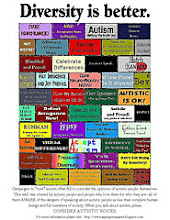High What

High what?
I have always had very strong views on the nature v. nurture debate and closely align myself with the nurture camp. Or at least I did until I was presented with two autistic boys. I quickly changed allegiance to the opposite camp.
I tell you truly, that before I set foot in this country, I had never in my life given anyone a ‘high five,’ when I was then aged 35. Such familiarity was well beyond my remit. I’m still not confident enough to ask whether it refers to some kind of sporting gesture, or merely indicates that you and your partner are fortunate enough to both enjoy having five digits? What is the appropriate behavioural model if your partner has less? These are the kinds of things that give me sleepless nights. If you had told me a decade ago, that I would be encouraging my children to make this gesture, or that, perish the thought, I too, would become such a person, I would have suffered an attack of the vapours.
I distinctly remember trying to train my three year old to practice shaking hands before he met his grandfather for the first time. The words, ‘how do you do?’ and ‘very well thank you,’ were beyond him, due in part to the speech delay, but I thought that the hand shake gesture was a possibility. I put all the other social requirements to the back of my mind, things like deportment, deference, respect, table manners, British food and speak only when you are spoken to – at least we’d be alright on that one, as no-one was very likely to speak to him anyway.
I had horrible nightmares predicting my son’s reaction to anyone attempting to touch him, shake his hand, let alone a six foot giant with an English accent claiming genetic connections. I spent many a long night before the visit, in bed imagining the wide variety of scenarios that were possible, all of them bad. I have never discovered whether it’s possible to know how many times you have fainted during the night, if you happen to be horizontal at the time? I prayed that the speech delay would disguise his American accent. It didn’t. Since he was still small, the hilarity caused by his speech or rather his accent, went unnoticed, at least by him. He may not have technically understood what was going on, but the underlying vibrations were easy to detect. He had few words at that time, but he decided not to use any of them for the entire fortnight [translation = 2 weeks] that we were there, he effectively went on strike. A distinctly British disease.
Just in case you were wondering ‘well if that’s the case why didn’t you get him checked out?’ I can only say that you’re absolutely right, but at the time, he could read simple sentences, spent hours pawing over books and could name you every dinosaur ever dug up with the correct pronunciation, when he was only three. We thought that he just chose not to talk very much, because when he did speak, the sentences were often too complex, rather than the other way around. But that issue is complicated by echolalia, which I’ll leave for another time.
Meanwhile, we are left with a couple of autistic children with the wrong kind of parents. It truly is the match from hell, the autistic child and the Brit parent. Now admittedly I’m speculating here, but imagine if your world was encompassed by a barrier of frosted glass. Outside you have the parent, the tight lipped, monotone, softly spoken, wooden bodied muttering adult. You’d barely register through the glass, you’d just be a quiet foggy shadow. What you need is a loud vivacious animated effervescent cheerleader type, and I think you only find them in the States. If that was the parent on the other side of the glass, it just might catch your attention, might and I repeat ‘might’ be, just sufficiently interesting to make you step up and try to smear back the mist.
In the meantime, if you spot some crazed woman in the park squalking “High Five,” at 50 decibels in a funny accent and attempting to co-ordinate palm to palm contact with a few small people, give her the benefit of the doubt? They may have many disadvantages but the majority of them are genetic. The minority of their problems are merely genetic.





1 comment:
"They may have many disadvantages but the majority of them are genetic. The minority of their problems are merely genetic."
Confusion not alleviated by context, but benefit of the doubt certainly granted.
;-)
Post a Comment